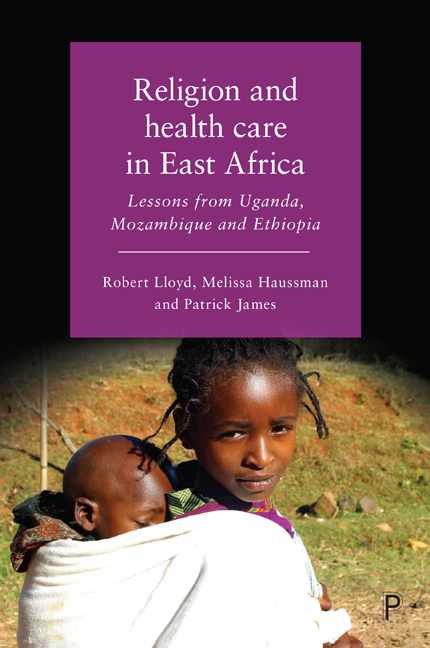6 - What have we learned?
Published online by Cambridge University Press: 27 April 2022
Summary
Overview
Religious belief plays an important and, for many, central role in the lives of people around the globe. This is especially true of Africans, and research from preceding chapters on Uganda, Mozambique, and Ethiopia is in line with that assertion. Religion provides meaning, relationships, and a world view. These beliefs, in turn, affect people's behavior in many domains of life. One important area relates to health care. When people are sick or injured, they seek medical assistance for the means to restore health. This is true for individuals with differing religious beliefs and for those who profess no particular religious belief. The meaning of medical assistance, however, can be more comprehensive—with an essential spiritual component—for people of faith.
This chapter unfolds in four additional sections. The first section covers processes of health-seeking behavior and provision in Uganda, Mozambique, and Ethiopia. Second, outcomes are reviewed for the three states. Third is a summing up of insights from the research in relation to processes and outcomes. Fourth and last comes theorizing that could stimulate future research. This takes the form of a conceptual model for religion and health care in Africa.
Processes
How do religious or non-religious beliefs affect how health care is both provided and understood? This book has examined the relationship between religion and health to understand better how they relate to one another. Three case studies have been drawn from Africa for a number of reasons. First, and as noted at the outset of Chapter 1, Africa has 13% of the world's population but 24% of its disease burden (Cooke 2009). Second, Africans are a very religious people; understanding how their beliefs interact with seeking health care provides important insights into obtaining more efficient, effective, and culturally sensitive ways of provision for Africa.
Answering the question of how religion is connected to health in Africa requires a response that may be summarized as define, measure, capture, and integrate. The first two challenges are those of definition and measurement: how best to define and develop ways to measure religious beliefs and behavior and the impact of these factors on the supply and demand of health care across such a vast and diverse continent.
- Type
- Chapter
- Information
- Religion and Health Care in East AfricaLessons from Uganda, Mozambique and Ethiopia, pp. 167 - 188Publisher: Bristol University PressPrint publication year: 2019

